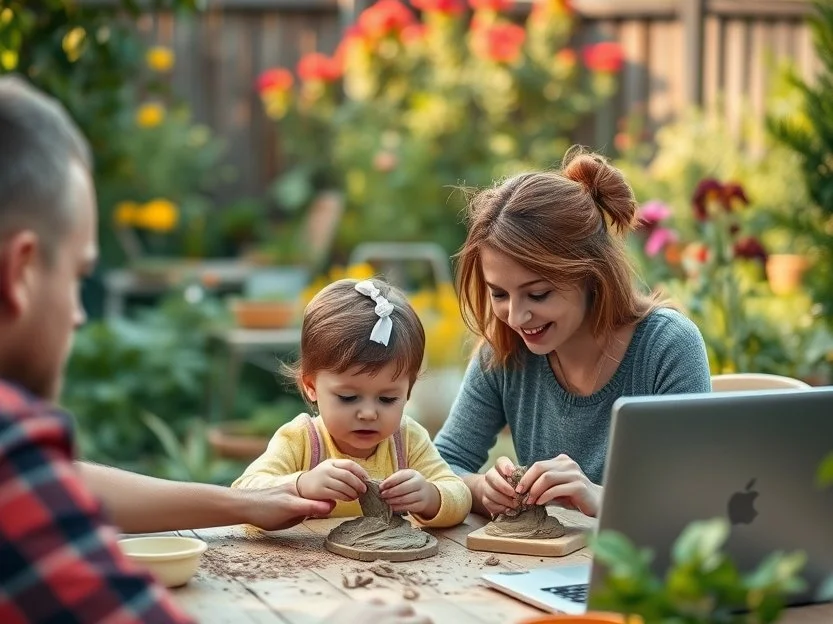Creative Counselling Approaches: From Art and Symbols to Gaming and Clay
Creative counselling approaches
There are so many alternative ways to spice up therapy - people are surprised that therapy can be fun and enjoyable. In fact, we say that learning and healing is best when enjoyable. Research shows that humans learn more when relaxed and when they can integrate new experience more easily.
Counselling is not meant to be a really serious talk-fest. In fact, our approach is not so much about talking. We are more action oriented.
When you want to learn something, you do not talk about it. You practice. You take action.
Counselling with creativity offers innovative pathways for individuals to explore their emotions, thoughts, and behaviours beyond traditional talk therapy.
Potential to change heal and grow - in your hands
At Ability Therapy Specialists, we recognise the transformative potential of using art, symbols, gaming, and clay as simple action-oriented expressive tools in therapeutic settings. We are Counselling Psychotherapists - so our focus is not on creative arts therapy. We are rather focused on healing, learning, and creating opportunities for change and growth.
Our work is focused on solutions - practical ways to move forward in life and with relationships.
This is even more particular and important for people with complex disabilities and mental health needs. How vital to be practical. To understand your needs. And help you to feel heard, to have someone really understand for a change.
The power of tech is everywhere today - even in therapy
How creative therapies work in counselling psychotherapy
Counselling therapy that uses a bit of art through drawing, painting, gaming, clay work and other visual mediums actively helps people to communicate feelings that may be difficult to verbalise.
Through symbols, colours, shapes, and forms, individuals can express what they are feeling. The inner experiences get to be expressed often for the first time. Then flows insight and emotional release.
Symbols really do play a crucial role in this process. Symbols serve as personal language. They embody personal stories, narratives, values, or conflicts.
Tech in counselling moves forward in so many ways these days
Gaming is an expression of the technology of online culture. The youth are well into this in spades.
Us older folks have a harder time understanding. But gaming is not just about playing the game - it is also about sharing, communicating, having challenges, facing obstacles, finding pathways through the maze, and turning defeat into lessons.
NDIS does not fund gaming therapy. And we do not offer gaming therapy in a formal sense. All of our creative therapies are used inside of our primary funded goals and approaches - used sparingly to assist inside of the NDIS goals contracted under our service agreement.
Our NDIS funded work is focused in behaviour support and counselling, and relevant therapeutic assessment associated with our scope of practice.
Actively using the tech in therapy is really creative itself - and can be fun and engaging
Clay work in counselling
Clay work or sculpting offers tactile, sensory engagement, grounding clients in the present moment.
By modelling clay, individuals tap into the inner heart. Hidden information surfaces. Another form of knowing happens.
This subconscious material expresses feelings in powerful ways. These experiences happen through three-dimensional forms - as symbols of shifting and growing.
The hands-on nature of clay work encourages mindfulness and can be particularly beneficial for individuals with sensory processing differences.
Self discovery and skill building insights
Incorporating these creative modalities into counselling aligns with our commitment at Ability Therapy Specialists to provide practical, person-centred interventions.
Such approaches honour diverse communication styles. We love making therapy more accessible and meaningful.
Ultimately, creative counselling enriches the therapeutic journey by opening new avenues for healing, growth, and understanding in the lives of people with disabilities and their support networks.
Creative therapies are fun, engaging, and teach many skills


